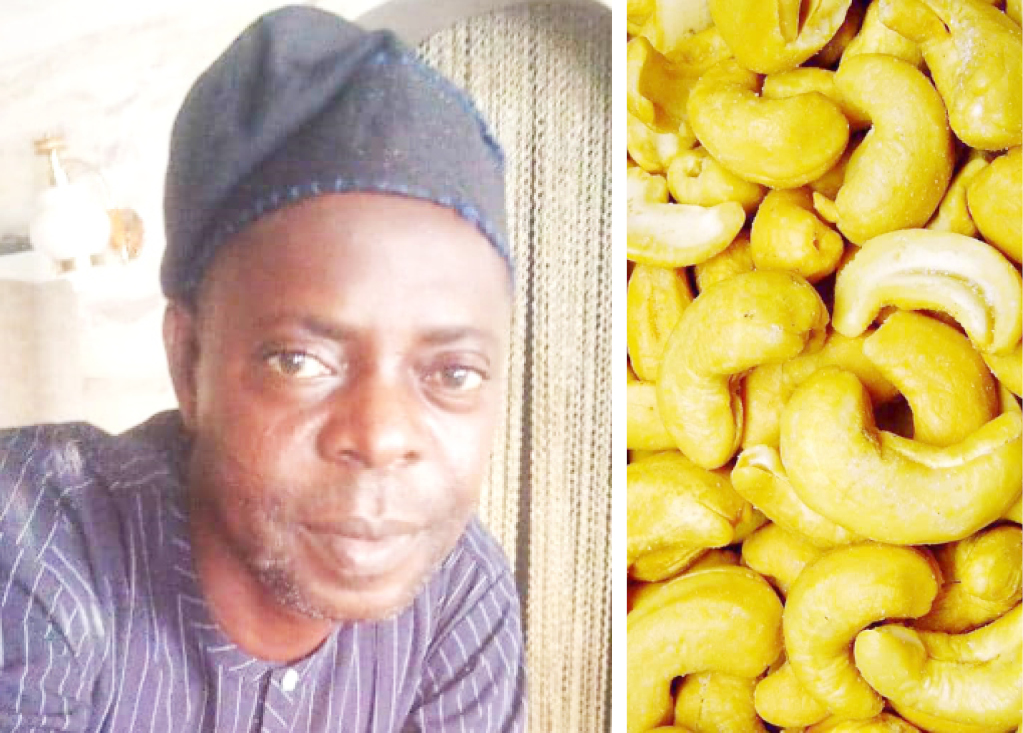In this interview, the chairman of the Kwara State Cashew Producers Association, Alabi Babatunde Dauda, talks about the outlook for the cash crop in the state and challenges they are facing, among other issues in the value chain
What is your assessment of cashew production in Kwara State?
Cashew production is a chain work that involves middlemen, local petty traders and those that sell it to exporters. But with the look of things, the government is not ready to look into the business. There is the need to really assist us, especially on the issue of processing and export of raw cashew. The federal and state governments must really look into the establishment of cashew factories in Nigeria to create employment and boost revenue. If we have the factory here, we will not depend on export to countries like China, India and Vietnam for survival. Cashew processing factories mean value addition that will positively impact our economy.
What is the price difference between the raw and processed cashew?
A ton of raw cashew now sells for N600,000. That is the amount we sell to the exporters but we don’t know how much they sell it. However, we discover from findings that a ton of processed cashew is sold for about N25 million. Kwara State doesn’t have enough companies but we have large cashew production that would otherwise have a huge benefit for the value chain. Those of us buying it will have a ready market to sell. At times, when you take produce to Lagos, you will be left waiting for months to collect your money which at times creates friction and disagreement between us and those we bought it from. But if the government comes in to off-take, having its own processing company, it will really assist.
What is your major challenge?
Our major challenge is lack of capital to fund the business. For instance, a trailer load of cashew is about N20 million and the cashew we have in Kwara is over 50,000 trucks. So how much can the middlemen spend to meet up with such a huge market deficit? We have a lot of produce on the ground now from various farmers because of lack of funds. The cashew we took to market for exporters for the past three weeks now, we have not been able to collect our money that will assist us to make new purchases. But the government has the capacity to buy all the available cashew for processing and export. In Kogi State now, the government has started doing that which is positively impacting the business and relieving farmers of this burden. They buy from the farmers and pay which has reduced the issue of funding.
What other alternatives do you think the government can explore?
On the other hand, if the government cannot or doesn’t want to establish factories, it can support the middlemen just like the governor of Oyo State is doing by partnering with the banks to sponsor cashew producers. Some get loans of N50m and N300m for those that have licence to export. But we don’t have such a structure in Kwara. We have made several attempts and efforts to see the governor but to no avail.
Do you suggest any form of adjustment in the supply chain?
I think what we have on ground is a major source of employment and with the right funding, it can really reduce the unemployment rate. We have the farmers, middlemen otherwise known as agents and those who have direct access to the exporters. We have the largest number of people among middlemen who are over 12,000 in Kwara. Those that deal directly with the exporters are not more than 50. So for instance, I have like 50 agents that I buy in bulk from and sell to the company. If we scrap them, it will affect a lot of things and moreover, it’s a source of employment. This is the period for cashew and many other sectors are involved in the value chain including okada riders, motorists, youths who we use as labourers for loading and sun-drying. But after we finish the circle which is about three months, we have to discharge them because we don’t have the capacity and capital to sustain them.
What is the level of cashew production in Kwara?
Very okay, in fact Kwara is number two in terms of the volume of cashew produced. Kogi State is the number one in this area. Because of the structure put in place by the Oyo State government by partnering with banks to provide funding, most of the cashew we produce here end up in neighbouring towns of Ogbomoso and Oyo. It’s like doing business with N500m and N20m, the difference is clear. About 50 per cent of the cashew produced in Kwara finds its way to Oyo State because of capital.
Is there any plan to establish small scale cashew industries for value addition?
We sell raw to the factories because we have to invest in machines if we want to process it for value addition and price increase. This is capital intensive because of the cost of importation. This is in the region of N150 to N300 million. We can establish small scale industries for cashew but we need support. Though we have very few of them in Kwara. They produce throughout the year once they have bought cashew in large quantities like 300 to 500 tons and we are talking about like 50 workers everyday. But those of us who are not so rich will have to disengage the workers after we have finished production because we don’t process.
What is the relationship between the workers and exporters like Olam and others?
Olam is trying with finance, in the sense that before the commencement of work, they look at the capacity of each person and provide some funding but at times along the line, they will stop it and stop collecting produce. For the past six weeks now, they have stopped receiving produce; they said they have gotten enough for their export.
What efforts have been made to engage Kwara government on the need for a cashew processing factory?
At a time, there were talks that the government was thinking about that but we have not heard anything on it again and that is one of the reasons we want to have audience with the governor which has not materialised despite several efforts. With professional advice and input from us on the field, the factory, if established, can employ over 1000 workers daily. There’s is no where Kwara state can make more revenue in agricultural products than in cashew, all their projections from other sectors or products are nothing compared to what cashew can give the state if properly regulated, processed and exported.

 Join Daily Trust WhatsApp Community For Quick Access To News and Happenings Around You.
Join Daily Trust WhatsApp Community For Quick Access To News and Happenings Around You.
